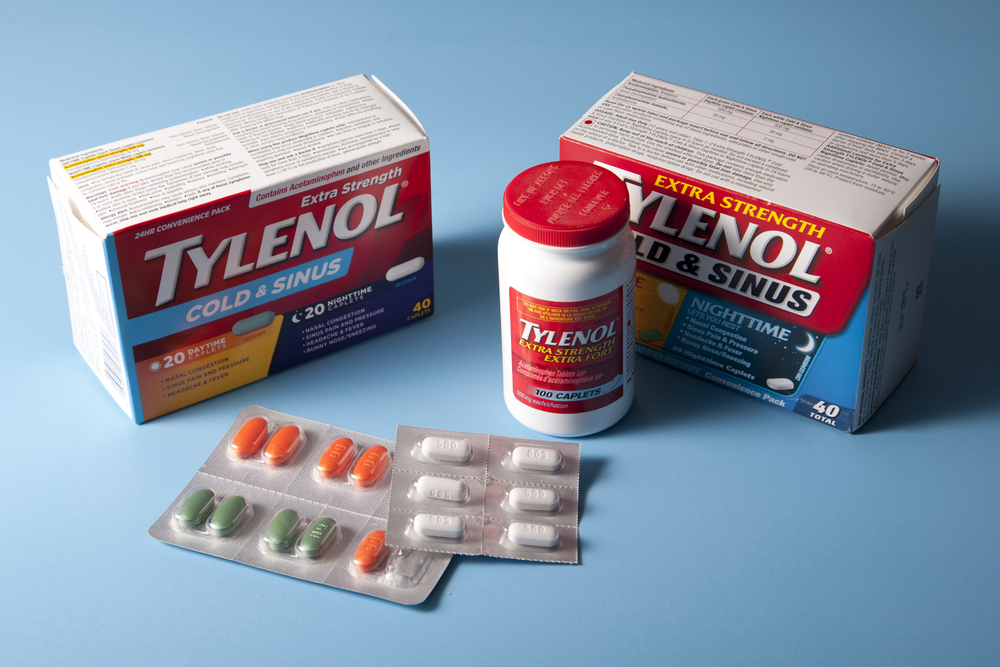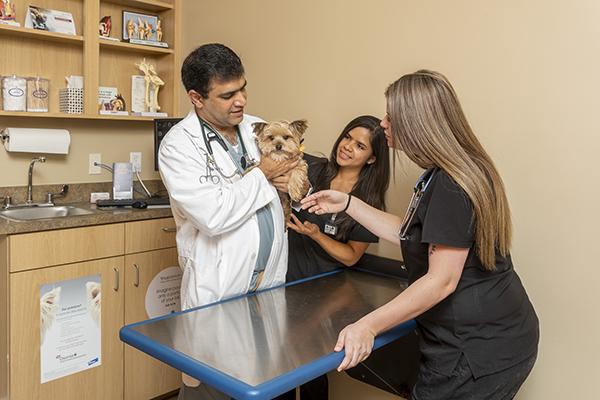Tylenol can be a great over-the-counter tool for humans when we have headaches or any other kind of pain that needs to be managed. While it works great as a pain reliever for us, when consumed by a dog it can be extremely dangerous. Our digestive systems are able to process certain enzymes that a dog’s system may not be able to.
Can Dogs Have Small Amounts of Tylenol?

In some cases, your vet may prescribe Tylenol or another drug with acetaminophen for your dog to treat a certain illness. However, this is only done in a controlled way that your vet has determined is necessary to manage your pet’s illness. If your dog has consumed Tylenol in an uncontrolled way, such as if they found Tylenol you had around the house for your own consumption, it’s important to get immediate medical attention.
Why Is Tylenol Bad for Dogs?
The pharmaceutical acetaminophen is unhealthy for dogs to consume because of their different metabolisms. Humans are able to metabolize and digest many different kinds of drugs or animal products because of the digestive enzymes present in our systems. Since dogs do not have those same digestive enzymes, their livers are especially sensitive to these drug products as they are unable to break them down in the same way a human can.
How Much Tylenol Is Toxic to a Dog?
While small amounts of Tylenol may be prescribed to a dog in severe pain management scenarios, the amount that ends up being toxic or fatal can depend on a variety of factors. The factors dependent on the amount that can be digested are usually the overall health status of the dog as well as its size. Usually, it can be toxic if 45mg per pound of a dog’s body weight of acetaminophen is consumed. The higher the dosage, the more likely your canine may experience negative consequences.
What Are the Symptoms of Tylenol Poisoning?
Symptoms of Tylenol poisoning may show up immediately or they may be gradual. These signs can include:
- Trouble breathing
- Vomiting
- Lethargy
- Nausea
- Dark urine
- Depression
- Face swelling
- Blue or dark gums
- Dry eye or conjunctivitis
Follow These Steps if Your Dog Has Consumed Tylenol
If your dog has consumed Tylenol or another drug containing acetaminophen, stay vigilant and follow these steps to get your dog immediate care and medical evaluation from a professional.
Step #1
Contact a Pet Poison Helpline
Contacting a 24/7 animal control center or pet poison helpline should be your first course of action if a dog has consumed Tylenol. A pet poison center can walk you through any at-home steps that you might need to take, such as giving your pet activated charcoal. They may also be able to assess the severity of the situation and determine whether or not the amount your dog consumed is severe or can be managed safely on your own.
Step #2
Transport Your Pet to the Nearest Clinic
If after speaking to a pet poison helpline you’ve determined that the amount consumed for your dog’s size and health status is dangerous, you will need to immediately take your dog to the nearest vet clinic for care by a professional. It’s a good idea to take your pet to the vet even if your call to pet poison control has determined that your pet isn’t in danger. An in-person evaluation will be the most helpful as a vet can more accurately assess your pet’s health, perform any needed tests, and administer a proper treatment plan.
Step #3
Follow Your Vet’s Treatment Protocol
Treatment will likely be necessary for your dog, especially if they consumed a large amount of Tylenol. It will be helpful to provide your vet with as much information as possible, such as how much of a bottle was consumed, whether it was normal Tylenol or extra strength, and if your dog has any previous health conditions that should be addressed.
How Do Veterinarians Treat Tylenol Consumption in Dogs?
If a large number of Tylenol has been consumed, certain treatments may be given to your dog including:
- Intravaneous fluids
- Blood work and liver valve monitoring
- Oxygen therapy
- Blood transfusions
- Decontamination
- Liver protectants
- Vitamin C
- N-acetylcysteine
- Induced vomiting
How Long Does Tylenol Toxicity Recovery Take?
Quick recovery in dogs is possible if treatment is administered as quickly as possible to help get the acetaminophen out of their system. Usually, a dog can make a complete recovery in a few days if they are monitored safely by a vet.
What Is the Long-Term Prognosis?
If quick treatment was not given to your dog after Tylenol ingestion, there is a possibility for permanent liver damage. Liver damage can affect the health and lifestyle of your dog and eventually lead to other health complications as they are unable to process other drugs or food in the future.
How Can Tylenol Toxicity Be Avoided?
Since there is a possibility for long-term damage in dogs with Tylenol, it’s important to take extra precautions to avoid Tylenol toxicity from occurring in the first place. TKeeping all medications out of reach of pets, don’t leave a purse or backpack with medication inside unattended, and never administer any medication or over-the-counter drug to a pet without consultation with a vet first.


